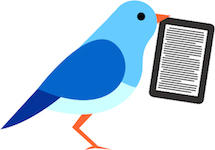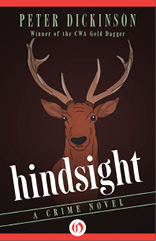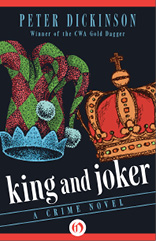Hindsight (19 page)
Authors: Peter Dickinson

*
Footnote, to avoid interrupting the flow, but it's a vital part of the argument. Stags, even in rut, are probably not dangerous. I have read three books on them and talked to a park ranger at Richmond. All four agree that stags can kill, but it's very rare. One of the books refers to a man being killed in a park in Devon about forty years back. The two others say that there is one authenticated instance of an attack pressed home and resulting in a death. It looks as if that instance must have been Wither. Of course we all believed stags were dangerous. It's a widely-held mythâthey have boards saying so at all the entrances to Richmond, for instance, though the ranger implied that those were really there to stop the deer being bothered. It was certainly accepted at the inquest on Wither. You might think countrymen would know better, but they didn't. Look what a shambles they made of the cull, for instance. The inquest, incidentally, was held in Exeter. I remember the coroner only vaguely, as a thin grey man in a black suitâa solicitor, I should think, but certainly a townsman. The whole question whether stags do attack people makes much more sense as soon as you accept that Wither was not killed by one, thus removing the only documented instance of such an attack. This, with Smith's marriage to Annette and (if you accept it as true) what he told me yesterday, are facts from the real world, not part of my novel, which have to be accounted for. If it weren't for them I think I could write the whole thing off as my own paranoia.
14
I
t will not have escaped the reader's attention that âSteen' and âDobbs' are not merely invented names, but the names of characters who are only loosely modelled on real people. No two such monuments adorn our literary landscape. And âMolly Benison' too. There are echoes in her of more than one (I hope) of the rackety beauties of her period, but which of them it she? If any?
Is the reader to assume that the whole of this book, with the exception of some decorative details from my childhood, is pure invention, and that the palaver about my ânovel' is only a bit of fashionable fooling around with notions of truth and fiction, fun for some, tedious for most?
Not really. It is all as true as I have been able to make it. I said this on page one, but the phrase is of course ambiguous. Even supposing I had the literary ability to get the whole truth down, there would still have been areas in which I was not able (in another sense) to tell the truth.
As I have explained, it all began when I was writing a quite different book. I was then asked to recall some trivial details about my childhood and found myself almost unable to do so because of a mysterious blanking-out of memory. I then seemed to myself to overcome this problem by casting my memories into fictional form, and started to write an autobiographical novel. But in the course of doing this discovered (or thought I discovered) that the events I was trying to remember added up to a pattern of some horror. At least one of the people involved was still alive, so the laws of libel made it impossible for me to publish my ideas, while the discovery itself made it impossible to finish the novel. And the death of âDobbs' seemed to me to close, both practically and emotionally, the possibility of further investigation. He had been my reader, the sole audience of my bizarre parade. With him gone there was no point in going on with it.
But it was not quite laid to rest. Writing of any other kind was clearly impossible until all this material had been put into some kind of self-explanatory shape and tidied away. The quickest solution was to botch together a book out of my MS, letters from and to âDobbs', and some linking passages. There was clearly no possibility of publication, so I put it all in a drawer and went back to the novel I had abandoned in mid-stream when âDobbs' first asked me to remember what I could about âMolly Benison'. (These quotation marks are a nuisanceâperhaps the reader will be good enough to supply them notionally for these last few pages.)
Early on in the book you have in your hands I mention, half-jokingly, my apprehension that âmy encounter with this enticing but ultimately frigid material might have ⦠the effect of rendering me impotent.' (I have only now noticed the coincidence between this notion and the affair between Molly and Steen.) The apprehension was justified. I got nowhere. The miseries of not being able for weeks on end to produce one bearable page of manuscript are considerable, but too boring to describe. In desperation I got my botched-up documents out of their drawer and sent them to my long-suffering publisher with a note saying that I knew they were no use but she might like to see what I'd been up to. (I suppose I imagined that having one person read the stuff and thus getting it minimally published might somehow appease the obsession which I felt was still blocking my ordinary work.)
I think she can't have read the covering letter, or else thought that my disclaimers were mere self-deprecation. At any rate she seems to have read the book as fiction. Not surprisingly she said she found it âconfusing'âthis was still at the stage when everyone had two names, rememberâand doubted the wisdom of using real people in quite the way I had; though most of them were dead, there was still the question of taste, and if anyone was alive there might be libel. But she didn't see why these difficulties shouldn't be cleared up. She made practical proposals, and in general wrote as though she were dealing with a novel which was in its last stages of being tinkered with before acceptance for publication.
I felt extremely reluctant. The question of truth haunted me. I will not say that the ghost of Dobbs stood at my shoulder, but the metaphor will do. I believed that I had come as close as is possible to the truth of a set of past events, and now I was being asked to infect that truth with lies.
My income tax demand came in. The rates had gone up. The clutch of my car burnt out. A gale caused a chimney-stack to fall through my roof, disclosing old timber-rots which the insurance did not cover. I settled down and started to tamper with the truth. I wrote this book.
So how much truth does it contain? Quite a lot, really. Certainly much more than I would ever have expected. But a price has had to be paid, in that I cannot afford to indicate to anyone which bits are true and which are not. If I were to go through someone's copy and underline all the true passages, he would then be able to deduce from these, and from the nature of the passages where I have had to depart from the truth, much of what actually happened; and in that case the whole point of altering anything would be lost. So the price of my publishing as much truth as is possible is that I have to do so in a form where it all has to be read as fiction.
Though it worked out in the end, the process of alteration was extraordinarily hard going. I often felt the whole web coming apart in my hands. Yes, early in the ânovel' there is an account of a girl called Cora making a string-pattern which she named âStarfish' and which then at the loosing of a single loop unravelled into nothing. Truth is such a web, all its nodes interdependent. Let one fact slip and the rest will go. But I managed to catch enough of them to make my own patternâif not the original âStarfish' then at least âEskimos Running Away'.
The difficulty was not merely technical. There were days, weeks, when I nearly gave up. But, still speaking in metaphors, I had unseen help. The monitory presence of Dobbs at my elbow changed; he would at least have understood about the income tax, but that is not what I mean. Other presences joined him, Steen and Daisy O'Connell and writers and artists whose names I do not know, who had had life sucked out of their work, books never finished or stillborn, years of creative work aborted or not begun, because of Molly Benison. Was she to do this to me also, even to my tiny volume? She must, somewhere, be defeated.
All very fanciful. Romantic twaddle. Death to decent writing, maybe. But it got me through, and you have this book in your hands despite her.
About the Author
P
eter Dickinson was born in Africa but raised and educated in EnglandÂ. From 1952 to 1969 he was on the editorial staff of
Punch
, and since then has earned his living writing fiction of various kinds for children and adults. His books have been published in several languages throughout the world.
The recipient of many awards, Dickinson has been shortlisted nine times for the prestigious Carnegie Medal for children's literature and was the first author to win it twice. The author of twenty-one crime and mystery novels for adults, Dickinson was also the first to win the Gold Dagger Award of the Crime Writers' Association for two books running:
Skin Deep
(1968) and
A Pride of Heroes
(1969).
A collection of Dickinson's poetry,
The Weir
, was published in 2007. His latest book,
In the Palace of the Khans
, was published in 2012 and was nominated for the Carnegie Medal.
Dickinson has served as chairman of the Society of Authors and is a fellow of the Royal Society of Literature. He was made an Officer of the Order of the British Empire in 2009 for services to literature.
All rights reserved, including without limitation the right to reproduce this book or any portion thereof in any form or by any means, whether electronic or mechanical, now known or hereinafter invented, without the express written permission of the publisher.
This is a work of fiction. Names, characters, places, events, and incidents either are the product of the author's imagination or are used fictitiously. Any resemblance to actual persons, living or dead, businesses, companies, events, or locales is entirely coincidental.
Copyright © 1983 by Peter Dickinson
Cover design by Mimi Bark
978-1-5040-0486-2
This edition published in 2015 by Open Road Integrated Media, Inc.
345 Hudson Street
New York, NY 10014


FRESH EBOOK DEALS, DELIVERED DAILY
BE THE FIRST TO KNOW ABOUT
FREE AND DISCOUNTED EBOOKS
NEW DEALS HATCH EVERY DAY
FROM OPEN ROAD MEDIA




